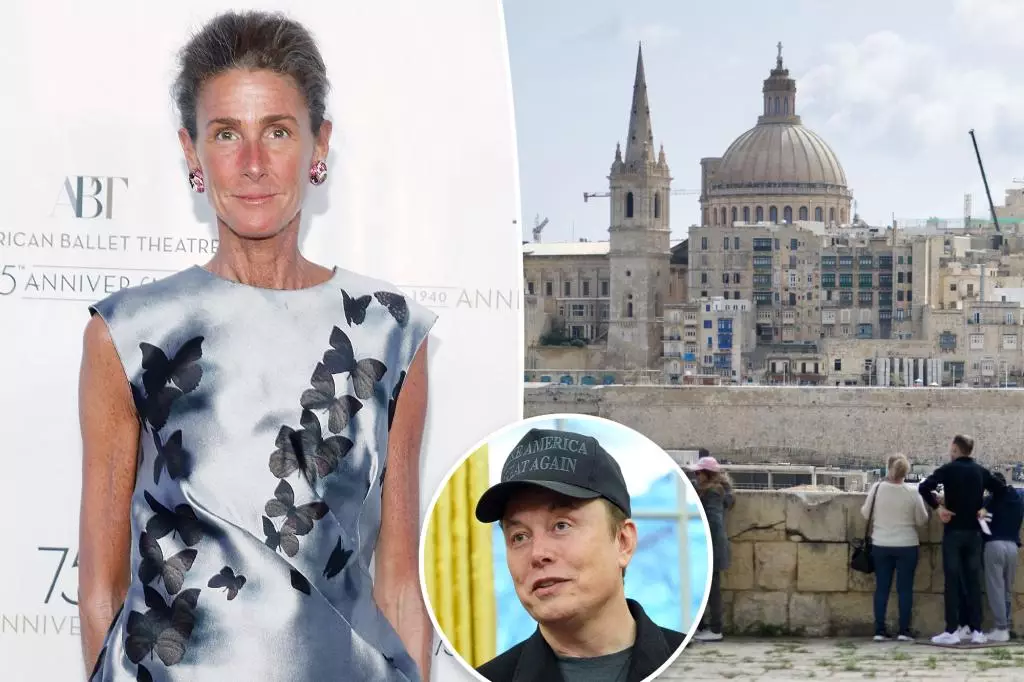In the realm of international relations, the appointment of ambassadors has traditionally been a prestigious affair, reflecting a nation’s priority and diplomatic intentions. Recently, however, under the Trump administration, there appears to be a significant shift—ambassadorships that were once seen as plum positions are now obscured by potential closures of critical diplomatic missions. Political critics suggest this could leave a host of newly nominated diplomats scrambling for roles, raising questions about the practicality of such high-profile appointments.
Consider the case of Somers Farkas, a quintessential socialite with connections to both philanthropy and the media, who was tapped to represent the United States in Malta. While her credentials reflect a vibrant public persona, the looming threat of embassy closures casts a shadow over her future role. Sources speculate that the administration’s defensiveness around funding for embassies could render such appointments largely symbolic if the diplomatic machinery isn’t fully operational.
Celebrity and Diplomacy: A Double-Edged Sword
The dynamic of celebrity and diplomacy often overlaps, with appointments like Kimberly Guilfoyle to Greece and Herschel Walker to the Bahamas drawing mixed reactions. These selections raise an important discourse about the qualifications necessary for effective representation abroad. While their public visibility might promise a fresh narrative, one cannot help but wonder if their star power compromises the gravitas typically required in diplomatic roles.
The backdoor chatter surrounding these appointments conveys a sense of skepticism, especially when insiders voice concern over potential government shifts, alluding to the notion that highly visible figures might be put in precarious positions if embassies are shuttered. The ominous predictions of ambassadors “camping out” due to a lack of assignment continuity highlight the precariousness of such positions in today’s political climate.
The Reality of Embassy Closures
The idea of closing embassies in countries like Luxembourg, Central African Republic, and Eritrea isn’t merely an administrative inconvenience; it’s a significant deviation from international engagement strategies. Each embassy represents a crucial lifeline for diplomacy that often extends beyond simple bilateral relations. The act of closing embassies entails a complex matrix of events that can take years, punctuating the notion that such actions are far from trivial.
As political insiders point out, closing an embassy isn’t akin to shuttering a Starbucks; rather, it requires an exhaustive diplomatic unraveling that affects not only personnel but also the strategic interests of the United States abroad. Furthermore, it raises critical questions about America’s foreign policy direction and the value placed on representation.
Ambassadors in Limbo
The uncertainty surrounding these appointments could lead newly minted ambassadors to face a grim professional outlook. With the potential for significant diplomatic downtime, how can these individuals contribute effectively? As they prepare for roles that may evaporate before they’re even confirmed, the reliance on their connections swiftly transforms into a struggle for relevance and purpose. As Farkas, Feinberg, and others navigate this unpredictable landscape, the broader implications for American foreign policy linger, casting a shadow over the diplomatic endeavors that historically defined nations on the world stage.
In an era defined by unpredictability, the dialogue surrounding these appointments underscores a fundamental truth: the intersection of celebrity, politics, and diplomacy requires careful navigation or it risks fostering a state of perpetual limbo, both for the ambassadors involved and the international communities they are poised to serve.

